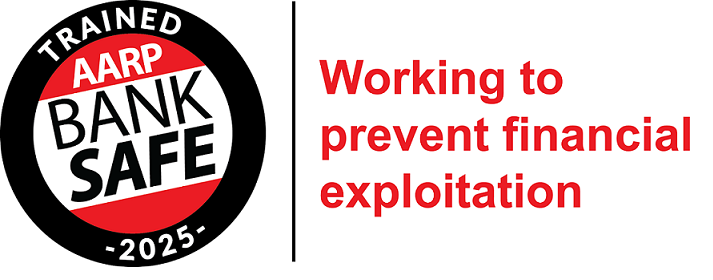
Prevent Elder and Dependent Adult Financial Abuse
An estimated five million older adults are victims of financial abuse each year, costing seniors close to $3 billion annually*. Unfortunately all too often, financial exploitation is committed by a person you know and trust, such as a family member, caregiver, friend, financial advisor, attorney, or even worse, the person already trusted with financial power of attorney by the senior, a friend, caregiver or family member. Elder financial abuse often occurs without the victim’s knowledge. *MetLife Study of Elder Financial Abuse, 2011. ©2011 Metropolitan Life Insurance Company November 2013.
Don’t Become a Victim! Take These Steps to Protect Yourself:
- Always shred receipts, bank statements, and other sensitive documents before throwing them away
- Never give your Social Security number, account numbers or other personal or financial information over the phone unless you initiated the call
- Don’t open e-mail from unknown sources, and especially – beware of any call or notice claiming you have won a lottery
- Never pay a fee or taxes to collect sweepstakes or lottery “winnings.”
- Request copies of your credit report once a year at: www.annualcreditreport.com
- Monitor your account activity regularly and report lost or stolen cards and checks or suspicious transactions to your credit union or bank immediately.
- Check references and credentials before hiring anyone. Don’t allow workers to have access to information about your finances.
- If a stranger needs to send you payment for something, insist on a check for the exact amount. Never accept a check for more or agree to wire the difference back.
- Never rush into a financial decision or let someone pressure you into any agreement. Ask for details in writing and consult with a financial advisor or attorney. Feel free to say “no.” Remember, it’s your money.
- Build a relationship with the people who handle your finances at your credit union or bank. They can look out for any suspicious activity related to your account.
- Trust your instincts. If it sounds too good to be true, it probably is.
Warning Signs
The key to spotting financial abuse is a change in a person’s established financial patterns, such as:
- Unusual bank account activity, including large, frequent or unexplained withdrawals or transfers, closure of CDs or accounts without regard to penalties, and uncharacteristic wire transfers.
- Sudden non-sufficient fund activity or unpaid bills.
- Checks written as “loans” or “gifts.”
- Bank statements that no longer go to the customer’s home.
- ATM withdrawals by a person who has never used an ATM card.
- A caretaker, relative or friend who suddenly begins conducting financial transactions on behalf of a senior or dependent adult without proper documentation.
- Suspicious signatures on any checks, financial or legal documents, or outright forgery.
- Sudden unexplained changes to the person’s powers of attorney, wills or trusts.
- Disappearing valuables or assets.
- Suspicious activities or suspicious people at a senior’s or dependent adult’s home.
- Substandard care despite adequate finances or the person displays confusion, fear or lack of awareness.
What to Do If You Suspect Financial Abuse
Elder and dependent adult financial abuse often occurs without the victim’s knowledge. The exploiter can many times be a family member, caregiver, friend, financial advisor, attorney, or even a financial power of attorney. If you experience, witness, or suspect these activities, take action immediately:
- Contact the Adult Protective Services organization in the county where the senior resides.
- Contact your local police – if fraud is involved, they should investigate.
- Report the suspected abuse to the senior’s or the dependent adult’s financial institution(s).
- If you suspect you are a victim, talk to a trusted family member who has your best interests at heart, or to your clergy. Talk to your attorney, your doctor, an officer at your credit union or bank, or contact your local Adult Protective Services organization for help.
Resources: The National Credit Union Administration (NCUA) and the Consumer Financial Protection Bureau (CFPB) provides financial resource tools like “Money Smart for Older Adults” and much more information to help older adults and their caregivers prevent elder financial exploitation at www.mycreditunion.gov. For additional resources, see below:



